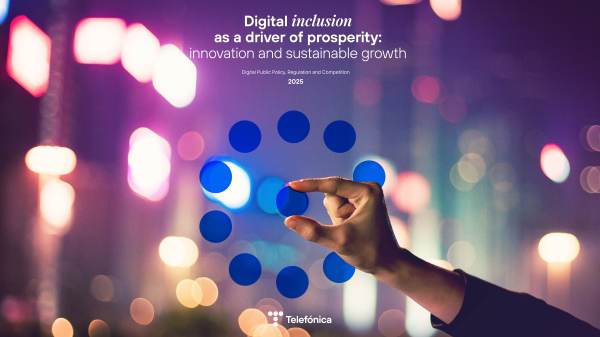Telefónica Public Policy & Telefónica España Regulatory teams
 On May 23 the School of Telecommunication Engineering (ETSIT) of the Polytechnic University of Madrid will host the Annual Conference of the Internet Governance Forum in Spain (IGF Spain 2013).
On May 23 the School of Telecommunication Engineering (ETSIT) of the Polytechnic University of Madrid will host the Annual Conference of the Internet Governance Forum in Spain (IGF Spain 2013).
The conference aims to:
• Serve as a reference in Spain for the debate on those issues involving Internet governance.
• Analyze the current issues, standardize criteria, draft proposals to move forward within the framework of Internet governance in Spain, as well as the implementation of our proposals in the international framework, advocating those positions proposed by its members.
• Open the debate on those topics that are currently of major interest to the different players in the Internet world.
• Present to society in an open manner the development of the debates which, on the topics specific to Internet governance, are being defined each year by the reference platform: the Internet Governance Forum (World forum).
• Reach conclusions and determine the messages to be conveyed to Spanish society, stakeholders, other platforms of governance and other international institutions.
The topics to be addressed during the IGF Spain 2013 sessions will include: Privacy and data protection, Digital Inclusion, Transparency and Open Data, Cyber-bullying, Intellectual Property and digital content, and Internet Governance.
IGF Spain 2013 will include a session on Internet Governance after Dubai in which Telefónica and other panelists will discuss the outcomes of WCIT-12 and contribute to find solutions to the problems that led to the ITU Member States’ failure on reaching an agreement. This session will try to answer the following five questions:
- Question #1: Internet Governance should be part of an international treaty, should it be the competence of a multilateral organization or should it continue as it is now (i.e. distributed among multi-stakeholder specialized private entities)?
- Question #2: In the assumption that it would be preferred to maintain the current approach, which ways are appropriate to perfect Internet Governance’s proper operation? In particular, many governments complain about their little influence on the management of the critical resources of the Internet, which are now in hands of US private institutions that are handled by the US Government. Should the power of governments be increased? Should the positions among the States be balanced? Should the power of private agents be increased? And which role should civil society play?
- Question #3: Telecommunication international services are subject to international treaties among states. As the telecommunication liberalization process develops in different countries, commercial agreements among private agents are substituting to a great extent the role of the states. In addition, telecommunication services are increasingly being offered “over the top” as apps on an internet connection. Is it reasonable to maintain the illusion of considering telecommunication services as something different from electronic communication services on internet? From the point of view of international law, should telecommunication services merge with electronic communications or vice versa? Does it make sense that international regulations only affect to telecommunication operators?
- Question #4: National governments are sovereign in their countries and guarantors of their citizens’ rights and duties in accordance with their current laws. They are also responsible of the security of their territories. Internet governance involves regulations related to property, privacy, communications control, content, etc. with very different codifications in the different countries, generating conflicts between internet agents and governments. Should Internet Governance Fora encourage specialized multilateral institutions that promote an harmonization of the policies on these topics?
- Question #5: The diversity of political regimes, cultures and habits, and economic regulations is a reality that cannot be put sideways. Internet is, by nature, a global net with open and unbiased contents. However, its users and the agents that support it are not. For this reason, Internet has become a key instrument of sociopolitical activism, in particular in the lesser democratic regimes. What can be done to avoid that interests of political nature end up producing an over-control of the Internet or even its territorial fragmentation?
In addition, the Forum will include a session to discuss the positions of the Spanish stakeholders – Government, private sector and civil society – and will inform about them to the relevant international bodies.
Attendance will be free of charge and the number of places is limited! You can click here to register for the event.
Additional information is available at here and @igfspain














